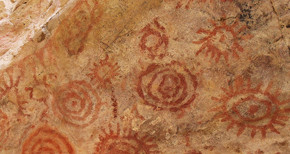SAA Protests Destruction of Archaeological and Native American Cultural Sites at Border Wall
Feb 11, 2020
The following is the text of the letter sent by SAA to Chad F. Wolf, Acting Secretary, Dept. of Homeland Security.
Dear Acting Secretary Wolf:
The Society for American Archaeology (SAA) condemns, in the strongest possible terms,
the recent destruction of several places of great cultural and historic importance to Native
American tribes in order to facilitate the construction of the border wall. We demand that
all further building activity in the affected areas cease until a complete re-working of this
phase of the project has taken place.
SAA is an international organization that, since its founding in 1934, has been dedicated to
the research about and interpretation and protection of the archaeological heritage of the
Americas. With more than 7,000 members, SAA represents professional archaeologists in
colleges and universities, museums, government agencies, and the private sector. SAA has
members in all 50 states as well as many other nations around the world.
In recent days, it has become apparent that the contractors who are working for the
Department of Homeland Security in building the wall along the boundary of the Organ
Pipe Cactus National Monument are proceeding with little or no concern for the
archaeological and Native American cultural sites that lie in the path of the construction.
Monument Hill, for example, is a place of great spiritual importance to several Native
American tribes, and the burial place of Apache warriors. Nevertheless, builders are using
explosives to level the ground.
In addition, construction is adversely affecting Quitobaquito Springs, the only naturally
occurring source of fresh water for miles in any direction. The oasis remains enormously
important to the spiritual practices of the Tohono O'odham people, yet road expansion is
threatening the physical integrity of the surface of the Springs, along with some burial
places nearby. Use of the water for building materials is also diminishing the water table.
These actions were carried out under the authority of the REAL ID Act of 2005, which
allows for the waiver of compliance with important federal preservation statutes in order to
speed up construction of the wall. Some of those laws include the National Historic
Preservation Act, the National Environmental Policy Act, the Antiquities Act, and the
Native American Graves Protection and Repatriation Act. SAA and other groups strongly
opposed the REAL ID Act at the time, arguing that such a waiver would result in
unnecessary damage to and destruction of irreplaceable natural and heritage resources. We
are now seeing the results of that unwise decision by Congress.
This terrible situation cannot be allowed to continue. In order to prevent further
desecration and permanent damage to our shared cultural past, all further construction in
the Organ Pipe National Monument must immediately cease, and not resume until 1)
comprehensive cultural and environmental resources evaluations have taken place, 2) a
plan to mitigate the damage to the sites is carried out, and 3) all impacted Native American
Tribes have been meaningfully consulted.
Sincerely,
Joe E. Watkins, Ph.D., RPA
President



